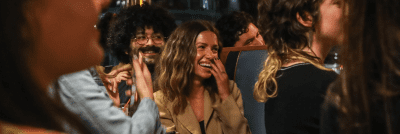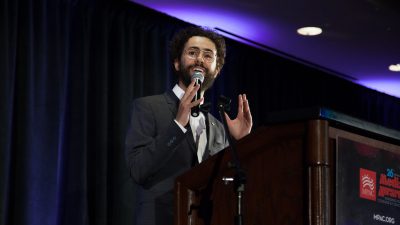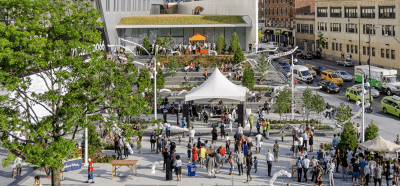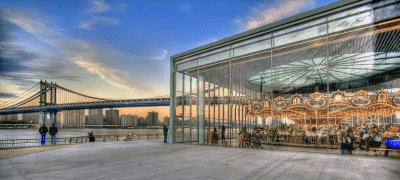Photo illustration by Johansen Peralta
The ‘necessary’ career of musician Gabriel Garzón-Montano
'I’m an eternal tourist,' says the singer-songwriter who joins the podcast this week to discuss his Brooklyn upbringing and eclectic music
Like what you’re hearing? Subscribe to us at iTunes, check us out on Spotify and hear us on Google, Amazon, Stitcher and TuneIn. This is our RSS feed. Tell a friend!
Gabriel Garzón-Montano is a singer-songwriter and multi-instrumentalist who has put out three albums and a handful of EPs, making music that is both vital and defiant. And he’s had an incredible run of success for someone who eschews self-promotion, preferring instead that his music, challenging as it can sometimes be, speaks for itself.
“I always wanted to make sure that my career was actually necessary. I’ve never been big on self promotion, which is a funny thing nowadays,” says Garzón-Montano, who is this week’s guest on “Brooklyn Magazine: The Podcast.”
You can judge for yourself if his career is necessary. But at the very least it does feel inevitable. He first caught the ear of singer Meyer Hawthorne, who heard his self-produced debut EP “Bishouné: Alma Del Huila” while in a New York record store. Hawthore in turn brought a copy of it to indie label Stones Throw Records. That landed him on tour with Lenny Kravitz in 2014, which is where he was when he learned that Drake wanted to sample his song “6 8” on the tune “Jungle.” Not a bad run of good breaks.
The music on that and his follow up album “Jardín” is sophisticated R&B, with clear nods to Prince and Stevie Wonder and even Radiohead and Björk, with a hip hop sensibility. More recently, on 2020’s “Aguita,” Garzón-Montano has also folded in elements of reggaeton, ambient, art rock and trap.
“I’m an eternal tourist because I come from a French mother, a Colombian father and I was born in New York City,” he says on the podcast. As a result, he says, he never fully felt like he was one cohesive thing. “I started off not relating and I still don’t relate … I’ve always longed to belong to a tradition. So my music is a collage of my favorite parts of all the things that I take in.”
You can hear him for yourself on June 18 when he performs at the inaugural Brooklyn Magazine Festival at the LeFrak Center, Lakeside in Prospect park. (Get your tickets here before they’re gone!)
On the podcast, though, we discuss how Garzón-Montano’s music is in perpetual conversation with his own background. His father is a political cartoonist; his mother was a singer and multi-instrumentalist herself, and a member of the Philip Glass ensemble. He remembers being very young, receiving somewhat abstract encouragement from her at the piano.
“She would ask me to play the rain or the ocean or a storm. So I would do my best to approximate,” he says. “I learned how to write songs by transcribing Stevie [Wonder] for sure, seeing the way he moved around and the way he would set things up and then deceptively lead you somewhere else and then come back around. His root movement and his chord changes gave me some building blocks that I could navigate and things that I could steal and twist.”
If you’re going to steal, it doesn’t hurt to steal from the best. We talk about how that triple identity — Colombian, French, New Yorker—informs his music and what to expect from him next.
“I share music because it belongs to people at the end of the day. But I make it for me. I made [‘Aguita’] because I knew that I could,” he says. “I was really excited about the possibility of an artist really living in very specific languages and putting these impossibly diverse offerings side by side and just kind of becoming almost three artists. That was a flex.”
Check out this episode of “Brooklyn Magazine: The Podcast” for more. Subscribe and listen wherever you get your podcasts.
You might also like 


























